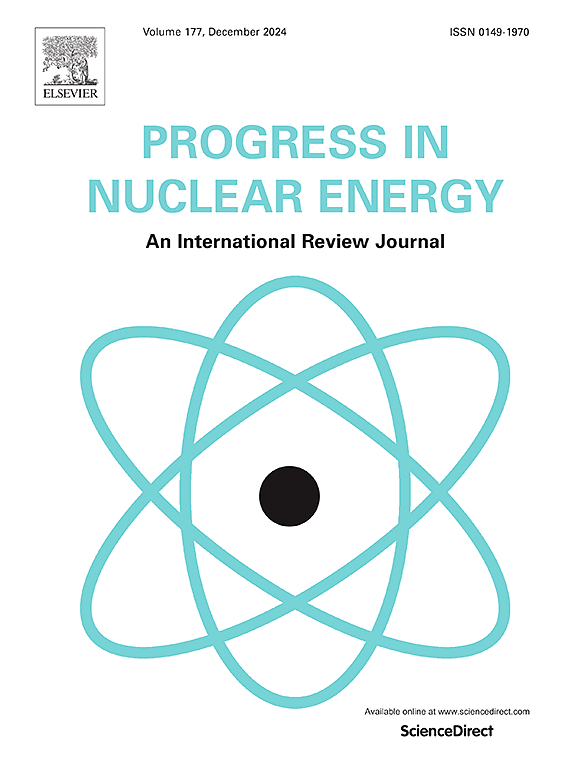Effect of circumferential and radial position on rewetting time under boil-off condition of 54 pins AHWR
IF 3.3
3区 工程技术
Q1 NUCLEAR SCIENCE & TECHNOLOGY
引用次数: 0
Abstract
The effect of radial and axial position in 54 pins fuel bundle of AHWR on the rewetting phenomena under boil-off condition has been experimentally examined. The power supply among three concentric rings of fuel bundle is distributed in ratio of 0.65, 0.79 and 1.33 considering postulated LOCA scenario. The experiments are being conducted at 550 °C and 600 °C. The rewetting phenomena examined at these temperatures with radial jet injection system, which supplied water at 90 lpm under boil-off conditions and atmospheric pressure. The observation shows that the rewetting time is different for each pin despite of same radial position and it has been observed in all three rings of fuel bundle. The rewetting time varies in each ring due to variable approach time for each pin. The outer ring rewet after inner and middle ring. Successfully rewetting in the fuel bundle is observed so the designed ECCS found to be satisfactory.
求助全文
约1分钟内获得全文
求助全文
来源期刊

Progress in Nuclear Energy
工程技术-核科学技术
CiteScore
5.30
自引率
14.80%
发文量
331
审稿时长
3.5 months
期刊介绍:
Progress in Nuclear Energy is an international review journal covering all aspects of nuclear science and engineering. In keeping with the maturity of nuclear power, articles on safety, siting and environmental problems are encouraged, as are those associated with economics and fuel management. However, basic physics and engineering will remain an important aspect of the editorial policy. Articles published are either of a review nature or present new material in more depth. They are aimed at researchers and technically-oriented managers working in the nuclear energy field.
Please note the following:
1) PNE seeks high quality research papers which are medium to long in length. Short research papers should be submitted to the journal Annals in Nuclear Energy.
2) PNE reserves the right to reject papers which are based solely on routine application of computer codes used to produce reactor designs or explain existing reactor phenomena. Such papers, although worthy, are best left as laboratory reports whereas Progress in Nuclear Energy seeks papers of originality, which are archival in nature, in the fields of mathematical and experimental nuclear technology, including fission, fusion (blanket physics, radiation damage), safety, materials aspects, economics, etc.
3) Review papers, which may occasionally be invited, are particularly sought by the journal in these fields.
 求助内容:
求助内容: 应助结果提醒方式:
应助结果提醒方式:


